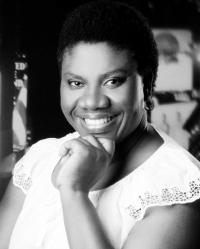What’s your midlife depression telling you?
I’m not going to bore you with the statistics – of the percentage of the population who will experience depression in their life time; the number or percentage of those who will notice it for the first time during what they consider to be their middle-age/mid-life; and so on and so forth. There are some reasons for this:
1. I hate statistics :-)
2. More importantly, I am not trying to persuade you that depression is common… and that it is a part of the human condition.
3. Nor will I try to convince you that certain life events can trigger a change, the consequences of which can range from minor adjustments to major upheaval in one’s life at any time.
If you’ve experienced the upheaval, you know that a few of the following have become true for you:
- What was once clear has become muddy. Where you used to be sure, you’re now so confused and unsure you don’t know what to do with yourself.
- Your sleep pattern has gone out of whack. Either you are now not sleeping enough, or you’re sleeping way too much... sometimes you go through a cycle of both, resulting in nothing like the satisfying sleep you once used to have... so even if you sleep a hundred hours per night, you still wake up tired and foggy.
- Just like your sleep, your appetite has gone crazy. You’re either eating too much (even if of healthy foods) or not enough.
- You lose interest in what you used to love and enjoy. This could include your intimate partner if you’re in a relationship.
- What used to motivate you now does absolutely nothing for you. It may even annoy you now.
- You catch yourself a few times a day wondering what your life is all about, and whether there is any point carrying on.
- It doesn’t matter how successful you are or have been - you have a lurking sense of failure.
- If anything goes wrong, you conclude that it is your fault and that you could have done or should have known better.
- If anything you do does go well, you conclude it was just a fluke.
- Sometimes, you feel such a heaviness in your body, you catch yourself shuffling where you used to sprint.
- You feel older than your biological age.
There are many reasons for the onset of depression in mid-life. If you haven’t experienced depression before now, it can be scary. If you have, it could also scare you to think that it might have returned with a vengeance. Therefore, anxiety could get thrown into the mix.
It can however be helpful to consider some experiences that may have brought about your midlife depression. For example (in no particular order):
- Debt and/or financial difficulties.
- Empty nesting – or any significant transition in your children’s lives.
- Infertility (where you may have wanted to have children).
- Hitting a ‘significant’ birthday and realising that some key dreams and goals haven’t been met, and might never be.
- Bereavement in the family, especially loss of child(ren) or parent(s)
- Separation/divorce and breakdown of family relationships.
- Betrayal by/estrangement from erstwhile trusted friends/family members/faith community.
- A crisis of faith.
- A stall in career/vocation.
- Redundancy at work.
- Retirement from work.
Hitting an all time low in midlife can be devastating. Although it might not seem like it at the time, it also presents a great opportunity for growth and personal development.
One way to access this growth opportunity is to ask yourself what your depression is saying to you. You may not have had the time or inclination to examine your life in your younger years; now might be a good time to practise what the ancient Greek Philosopher, Socrates, meant when he said: “an unexamined life is not worth living."
Taking stock of where we are, how we got here, where we would like to be and how we could get there could make a whole world of difference to our quality of life, health and well-being... such that, rather than draw the covers over your head screaming on the inside that your life is over, you can look your depression in the face, hear what it has to say, and begin to take deliberate measures to live on purpose.
This doesn’t mean that everything will become rosy overnight. It doesn’t mean there won't still be stuff that's outside your control. What it does mean is that you can actively cultivate a meaningful life for yourself, with everything that is within your control – and there is a lot of that, although you might sometimes have to dig pretty deep to reach it.
Some individuals can do this stock-taking with what they have already – fabulous internal resources and a great support network amongst their family, friends and community. Others might need a bit of support to mine their internal resources and to cultivate a useful support network.
If you need that bit of support, then contact a counsellor. Helping people gain clarity and find meaning in their lives is something that helps to get me out of bed every morning!

Find a therapist dealing with Depression
All therapists are verified professionals






